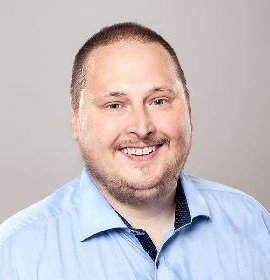Dr. Mike Sips

Function and Responsibilities:
- Scientific leader of the research group "Big-Data Analytics"
Research Interests:
I cooperate with a fantastic set of colleagues pursuing research on diverse data science projects, machine learning/artificial intelligence-based data analytics systems, explainable artificial intelligence (XAI) methods, and computational concepts for big data. In these projects, we develop novel systems that support scientists in performing the primary analytical steps of data-intensive science: a) understand the properties and characteristics of scientific data, b) extract structure and patterns from data using machine learning/artificial intelligence, and c) explain results to the user using effective visual encodings of the data. My experiences show that the collaboration of computer and geoscientists produce novel methods and results, and collaborations expand scientific methods in both disciplines under the mutual influence of different lines of scientific thinking. Our flagship projects were GeoMultiSens (big data) and SEVA (machine learning/artificial intelligence data-based data analytics system).
My current projects are:
- with Christopher Irrgang, Jan Saynisch-Wagner, and Reyko Schachtschneider, we develop a set of Explainable AI methods to support the interpretation of deep learning models used in earth system modeling scenarios (our contribution to future data science methods of the earth system modeling community),
- with Mahdi Motagh and Binayak Ghosh, we develop an Explainable AI method to support interpreting flood detection results from deep learning models,
- with Johannes Boog from UFZ, we develop a machine learning/artificial intelligence-based calibration method for the calibration of large-scale physics-based models,
- with Daniel Eggert, we develop the technological basis of future data science systems in geo-scientific scientific scenarios, which lowers the technological hurdles for scientists to conduct data-intensive science.
- with Johann-Christoph Freytag, we develop a declarative language that makes the development and use of Explainable AI methods and systems more manageable for scientists compared to the current approaches that require scientists to produce a large amount of programming code.
- SEVA: Visual Analytics for Scalable Change Detection. German Society for Photogrammetry, Remote Sensing and Geoinformation. March 2020, Stuttgart.
- SEVA - Scalable Change Detection. DLR Symposium Neue Perspektiven der Erdbeobachtung. November 2019, Köln.
- BigData-Analytics @ GFZ. Martin-Luther-Universität Halle-Wittenberg. Juni 2019, Halle/Saale.
Current scientific activities:
- Cooperation with Johannes Boog from UFZ (currently a guest scientist in our group) funded by the HIDA data science school, 2021
- Research visit of the DLR Institut Data Science and the chair of theoretical computer science at Friedrich-Schiller-Universität Jena, October 2020, Jena
- Research visit of the DLR Institut Data Science and the chair of theoretical computer science at Friedrich-Schiller-Universität Jena, October 2020, Jena
- Research visit of the BigData Analytics group at Martin-Luther-Universität Halle-Wittenberg. Juni 2019
- Big-Data expert of the German Committee for the Transatlantic Dialog "Big Data and Cybersecurity," February 2018, Ottawa (Canada)
Career:
- 2010-present: Scientific leader (tenured) of the research group "Big Data Analytics"
Education:
- Master (2001 Martin-Luther-Universität Halle) und PhD (2005 Universität Konstanz) in computer science.
- Stanford University (2006-2008) and Max-Planck-Institut Informatik (2008-2010)
Projects:
- GeoMultiSens: Scalable multisensor analysis of remote sensing data"
- SEVA: Scalable exploratory change detection for big Sentinel-2 data"
Awards:
- 2006-2010: Research stipend of the Max-Planck-Centers für Visual Computing with a two year research visit of Stanford University (Palo Alto, USA) und Max-Planck Institut Informatik (Saarbrücken)
- 2006: EADS Dornier Research Award for outstanding PhD thesis.
- 2006: Winner of the IEEE InfoVis Contest
- 2002: Summer Internship mit AT&T Shannon Research Laboratory, Florham Park, NJ, USA.


